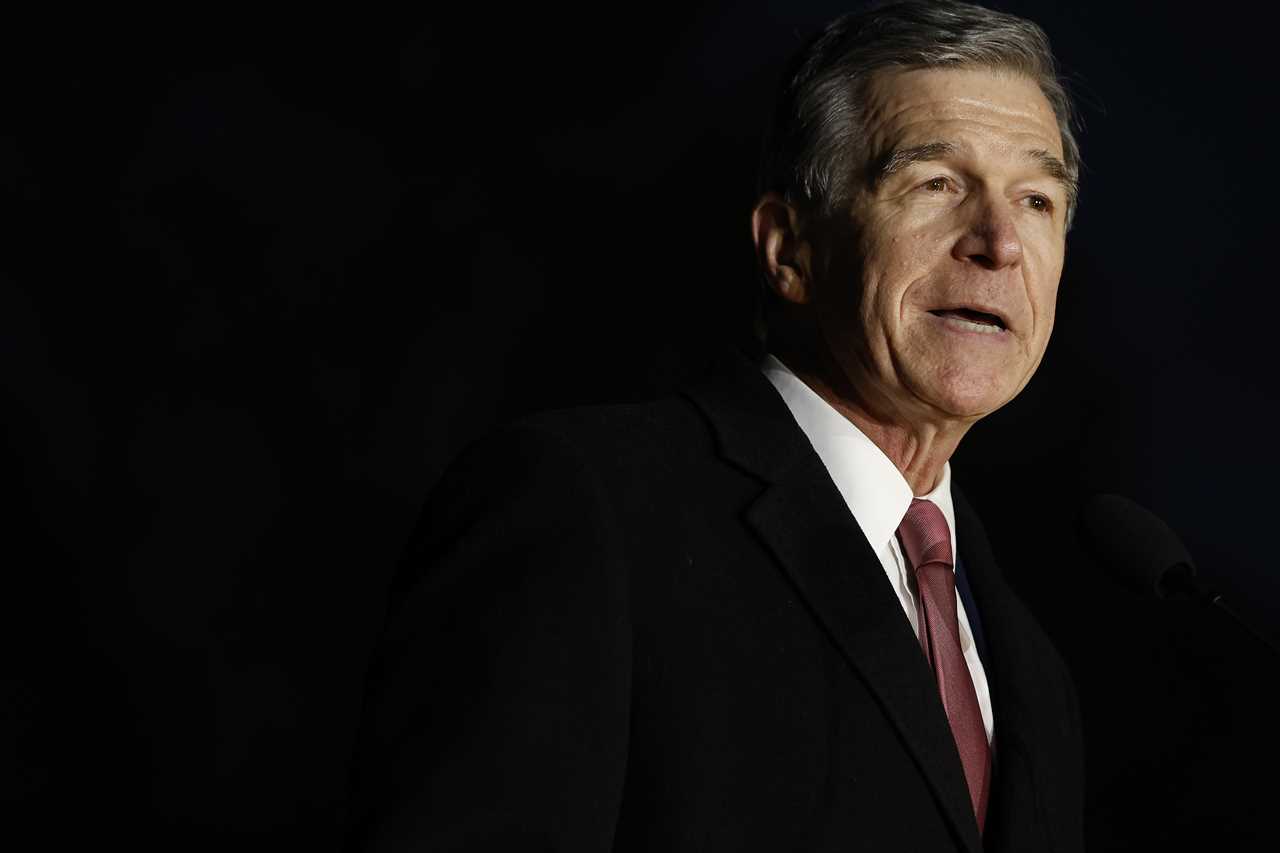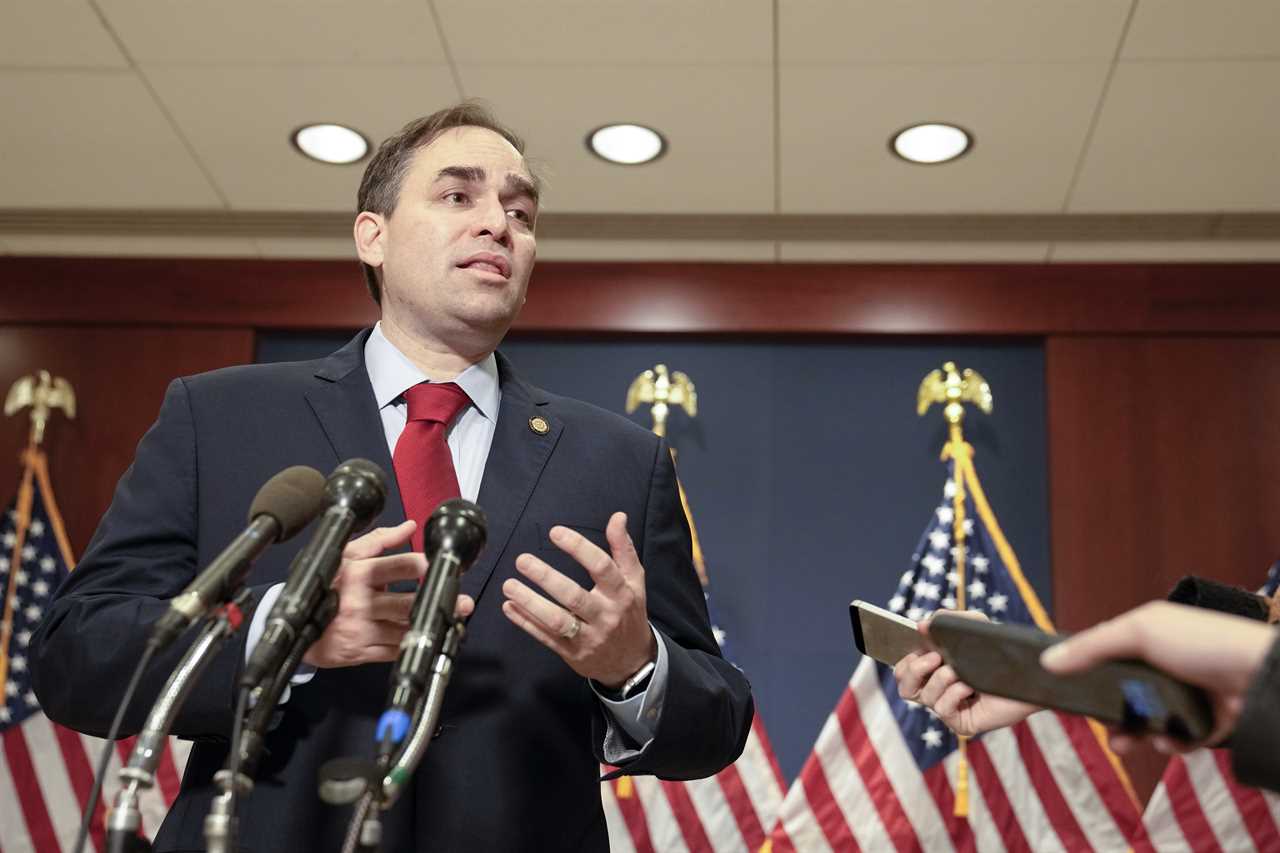
It’s a state Democrats have been buzzing about for years as a battleground hotspot — one expected to draw in big spending on the presidential race, a marquee governor’s race and congressional elections that could tip the tightly divided House in 2024.
But the party has never been able to push North Carolina into true tossup-state status like it has with Arizona or Georgia.
Democrats haven’t won the state’s electoral votes since Barack Obama’s heralded 2008 victory. They haven’t won a Senate race since then, either. And while North Carolina has delivered just enough mixed results to make clear it is, in fact, winnable for the party, including Democratic Gov. Roy Cooper’s two terms, there have been more than enough GOP victories to see Democratic money, effort and attention turn to other states that have been changing more rapidly.
That’s left North Carolina Democrats having to fight for the resources now flowing freely into places like Arizona and Georgia, now two of the most tightly divided battlegrounds in America (which did not turn blue in 2008). Cooper and others are making the case that North Carolina’s fortunes have national impact — the governor’s presence has made it a refuge for abortion access in the South, and it remains a key piece of any potential GOP president’s political math.
“Republicans know that they have to win North Carolina in order to win a presidential race — there’s no other path for them. There are other paths for a Democrat to become president and not win North Carolina,” said Cooper, who is now termed out of his governorship, in an interview with POLITICO.
Cooper argued that makes victories in places like Arizona and Pennsylvania in 2022 possible, as North Carolina soaks up resources that could go elsewhere. But Cooper said he’s still making the argument “to the president on down” that North Carolina should chart the top of their priority list in 2024.
Yet interviews with nearly a dozen North Carolina Democratic elected officials and strategists yielded a range of problems, including a weak in-state party infrastructure, a series of less-than-inspiring federal candidates and not enough investment from national Democratic groups. Unlike a number of other Sun Belt states, growth has not been driven by one major city but by a patchwork of regionalized metro areas, all with different media markets, and North Carolina’s urban and non-white populations have not grown at the same lightning speed as cities like Atlanta or Phoenix.
“I wouldn’t say it’s the next domino that will make it blue, on a presidential level, forever in the way we see in Virginia, Arizona and even Georgia, where the demographics and population changes are truly driving this,” said Corey Platt, a Democratic strategist who served as the Democratic Governors Association’s political director. “It’s a purple state that’s center-right on economics and a bit more center-left on social issues, and so it takes the right Democrat or the right Republican to win, and federally, we haven’t been able to thread that needle.”
Former Republican Gov. Pat McCrory said that wins in North Carolina often “comes down to who has more money, and the stats show it.”
“Both parties can be accused of misreading North Carolina, but I would be shocked if Democrats leave it uncontested,” McCrory said, who lost a Senate GOP primary bid in 2022. “North Carolina can swing back and forth.”
It all has big implications for 2024, as Cooper drives to make it a top priority for a Biden reelection and state Attorney General Josh Stein launches bid to succeed Cooper in what could be the most expensive gubernatorial race next cycle. A potential redrawn congressional map later this year could also pad the GOP’s slim edge in the battle for the House next year, now that the state Supreme Court leans conservative.
The size of North Carolina’s swings back and forth has shrunk, meanwhile, into a smaller and smaller pool of truly independent voters, making the days of backing President George W. Bush by 12 points — even with then-Sen. John Edwards on the Democratic ticket — and Democratic Gov. Mike Easley by 13 points in 2004 feel like ancient history. Mirroring national trends, North Carolina’s urban-rural divide reveals a stark partisan split — an intractable problem for Democrats, as the state boasts the second largest rural population, behind just Texas.
When Democrats fail to turn out their core base in urban corridors, Republicans’ rural edge becomes insurmountable. In 2022, Democrats struggled with just that, despite a history-making candidate on the ballot in Cheri Beasley, a former state Supreme Court justice who is a Black woman. Instead, Democrats saw significant dropoff with young voters, urban voters and Black voters.
Statewide, African American turnout dropped by 6 points compared to 2018, another midterm year when there wasn’t a major statewide race atop the ticket. Voters over 60 made up a far larger share of the electorate compared to millennials and Gen Z, while urban voters lagged behind the statewide turnout average, according to an analysis by Michael Bitzer, a political science professor at Catawba College.
That turnout drop off, some Democrats argue, came down to cash. Republican outside groups significantly outspent their Democratic counterparts, giving now-Sen. Ted Budd (R-N.C.) about a $50 million spending edge over Beasley. Republicans, meanwhile, note that Beasley outraised Budd in candidate cash by $24 million, which should’ve helped close some of that gap, since candidates get better rates on TV ads than outside groups.
“It’s almost impossible to overcome a $53 million outside spending gap that depresses votes for the Democratic candidate,” Cooper said. “I do think resources play a huge role and will play a huge role in 2024.”
Senate Majority PAC, the flagship Democratic outside group, noted its $22 million investment in North Carolina in 2022, calling it “a perennial battleground state with traditionally close races where we know we can succeed — and we look forward to helping Democrats win there in the future,” Veronica Yoo, a spokesperson for the group, said in a statement.
Still others pointed to the party’s infrastructure, which is “still missing a critical, year-round organization that can mobilize and turnout voters,” said state Sen. Jay Chaudhuri, a Democrat who represents part of Wake County. “I think we have a really good foundation, but it’s cracking the code on the field and organizing side of things that will be key.”
But even as fewer voters split their ticket in North Carolina, Democratic Rep. Wiley Nickel still believes that what works in North Carolina is to reach into that middle.
“There’s a vast group of voters in the middle, and they don’t want people on the far right and they don’t want people on the far left,” said Nickel, who won an evenly divided congressional seat against former President Donald Trump-endorsed Republican Bo Hines. “Anyone who watched our race knows that we were running against extremism in both parties and on the issues that mattered to most folks in the middle.”

Running against extremism is already a clear theme of Stein’s campaign, who became the first Democrat to launch his bid for the open governorship earlier this month.
Within the first minute of his launch video, Stein’s campaign featured footage of a potential GOP opponent, Lt. Gov. Mark Robinson, and former President Donald Trump on stage together. It spliced together some of Robinson’s anti-abortion rights and anti-LGBTQ comments, including a voice over from Stein: “Some politicians spark division, ignite hate, and fan the flames of bigotry.”
Jim Blaine, a Republican strategist, said Stein’s opening salvo is proof “that they don’t think they can carry the day on the merits of their candidate alone, so they have to make it about the other guy,” he said.
“North Carolina is a competitive state, but it’s Republican-leaning, so you have to nominate a centrist, if you’re a Democrat, to win, and they don’t tend to nominate those candidates,” Blaine continued.
----------------------------------------
By: Elena Schneider
Title: How Democrats got sidetracked in their swing state of the future
Sourced From: www.politico.com/news/2023/01/31/north-carolina-swing-state-00080324
Published Date: Tue, 31 Jan 2023 04:30:00 EST
Did you miss our previous article...
https://consumernewsnetwork.com/politics-us/new-rules-needed-to-curb-abuse-of-crypto-currency-as-the-collapse-of-cryptocoin-prompts-calls-for-them






